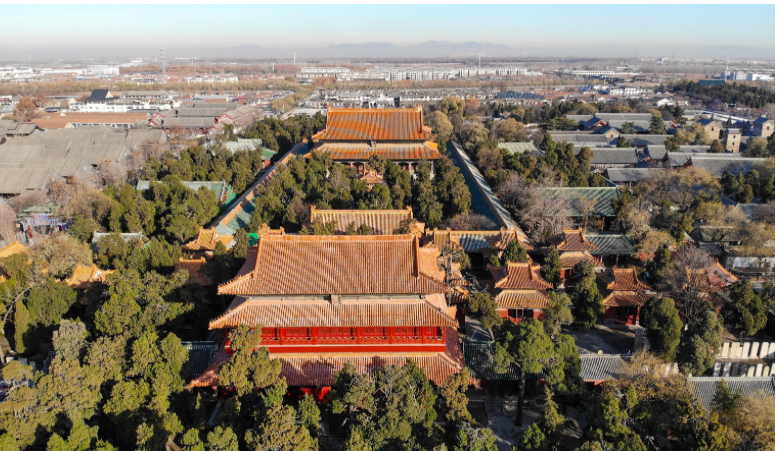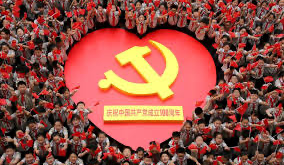Published: October 08,2024

The Temple of Confucius in Qufu City, Shandong Province, China. /CFP
The 2024 China International Confucius Cultural Festival is underway in Qufu City, east China’s Shandong Province, the birthplace of Confucius. With the theme “Conversation with Confucius, mutual learning among civilizations,” this year’s event seeks to explore the modern relevance of Confucian teachings and facilitate cultural exchange on an international scale.
Confucius, born over 2,500 years ago in Qufu, was an influential Chinese philosopher and educator whose teachings emphasized morality, social relationships and justice. His philosophy, known as Confucianism, has had a profound impact on Chinese culture and East Asian societies, shaping values, behavior and governance for centuries.
Running from September 27 to October 7, this year’s festival has broad global involvement, with over 370 guests from 36 countries and regions across five continents. For the first time, the event is organized with a main venue in Qufu and a secondary venue in Quzhou City, Zhejiang Province, both celebrating Confucius and his cultural impact.
Dough sculptures depicting Confucius teaching a lesson are showcased at the 2024 China International Confucius Cultural Festival in Qufu City, Shandong Province. /CGTN
Blending tradition and technology to engage audiences
To make the ancient philosophy more accessible to the younger generation, the festival features creative and interactive experiences. “Kong Xiaoli,” an AI-powered digital avatar of Confucius, serves as an interactive guide, bringing the ancient teachings to life in a contemporary and engaging manner.
Themed activities such as Hanfu dress-up sessions, Chinese culture workshops, and heritage appreciation events like shadow puppet performances offer immersive experiences for all ages, encouraging public participation and connecting traditional Confucian values with modern life. Digital exhibitions and self-guided tours are also introduced to make Confucian culture more accessible and engaging.
A shadow puppet of Tan, an avaricious beast in ancient Chinese legend who can swallow gold and silver treasures, at the Kong Family Mansion in Qufu City. /CGTN
Boosting tourism and cultural experiences
During the “Golden Week” holiday period, Shandong Province is rolling out a series of culture and tourism events to encourage tourism. These activities include food festivals, opera performances and displays of intangible cultural heritage.
In Jining City, the “Confucius Heritage Tour” allows visitors to explore key historical sites like the Confucius Temple, Kong Family Mansion and Cemetery of Confucius, providing an immersive experience of Confucius’s life and teachings while also enjoying the beauty of autumn in Jining.
The festival has played a crucial role in the cultural and economic development of the local region, as noted by Zhao Xiangen, a local cultural heritage official. He emphasized that the festival has enriched both city life and tourism while allowing Confucian ideals to gain renewed relevance in modern times.
A stele pavilion at the Temple of Confucius in Qufu City. /CGTN
Fostering cultural innovation and global dialogue
The festival, which began in 1984 as a local celebration of Confucius’s birthday, has evolved over the past 40 years into a multifaceted international event. It fosters cultural exchange, academic dialogue, tourism, and economic collaboration, enhancing local cultural identity while building global partnerships.
As part of the festival’s international dialogue on cultural heritage, experts and scholars from Japan, South Korea, Vietnam, Malaysia, France and other countries gather to discuss the preservation of Confucian temples and academies, promoting cross-cultural cooperation.
Beyond the event itself, Confucian teachings continue to resonate with people worldwide. For Arina, an international student of Armenian and Russian nationality who has been in China for a year, the teachings of Confucius have a personal impact.
“One of his teachings that resonates deeply with me is ‘practice self-cultivation, maintain family harmony, conduct good governance, and guarantee peace,'” she said, interpreting this as the importance of cultivating oneself, regulating the family, governing the state, and bringing peace to the world.
Arina finds this teaching powerful because it stresses personal growth not just for individual success but as a foundation for social harmony. She relates this idea to an Armenian saying, “Every person is the blacksmith of their own house,” which echoes Confucius’s belief in the link between well-ordered families and a well-ordered society.
cgtn.com
 Africa -China Review Africa -China Cooperation and Transformation
Africa -China Review Africa -China Cooperation and Transformation
